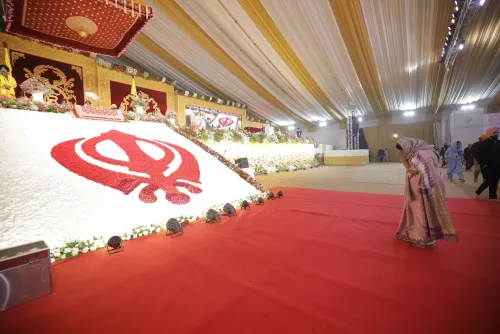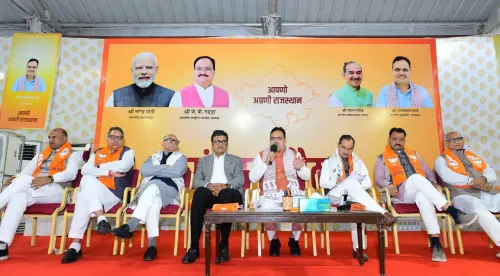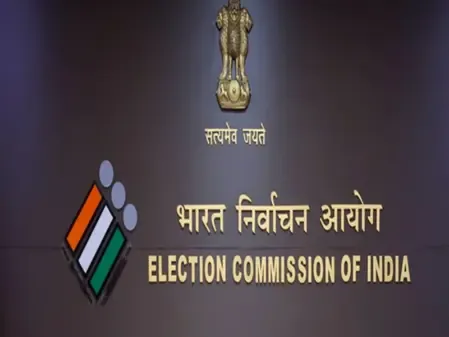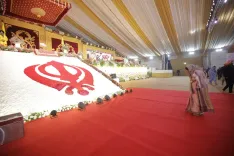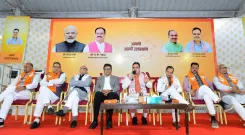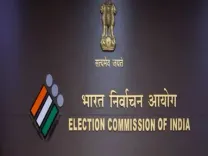How is CISF Revolutionizing Airport Security in India?
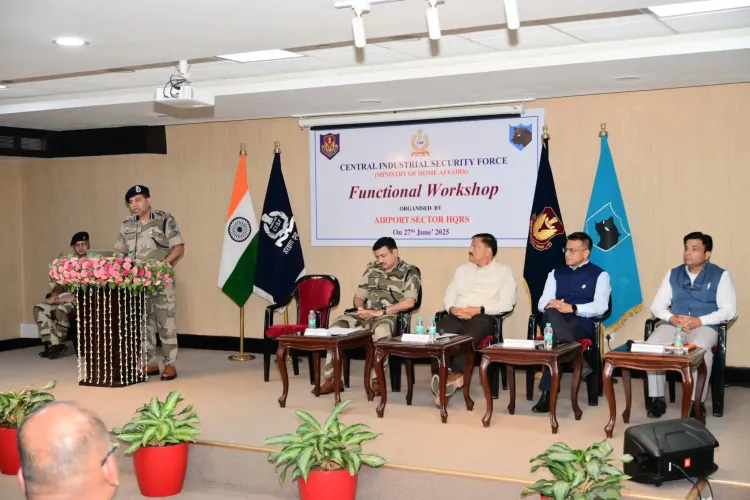
Synopsis
Key Takeaways
- Enhanced integration of technologies for streamlined security checks.
- Unified training for airport personnel to standardize procedures.
- Upgraded VIP security protocols focusing on layered protection.
- Proactive approaches to passenger grievances using technology.
- Incorporation of AI for predictive threat analysis.
New Delhi, June 28 (NationPress) In a significant move to bolster airport security and enhance the passenger experience, the Central Industrial Security Force (CISF) organized a high-profile workshop that united all crucial stakeholders within India’s civil aviation sector.
The “Functional Workshop of Airport Sector,” conducted at the CISF Airport Sector Headquarters on Friday, witnessed participation from senior CISF officials, security leaders from 69 airports, and esteemed representatives from the Ministry of Civil Aviation (MoCA), Directorate General of Civil Aviation (DGCA), Bureau of Civil Aviation Security (BCAS), Airports Authority of India (AAI), Delhi Police, Bureau of Immigration (BOI), Special Protection Group (SPG), National Security Guard (NSG), Delhi International Airport Limited (DIAL), and major airlines including Air India Express and IndiGo.
The workshop aimed to make airport security not just stronger but also more intelligent and centered around passengers. Here are the crucial outcomes and their benefits for various categories of air travelers.
Security checks are set to become more streamlined. Discussions centered on the integration of biometric entry passes alongside facial recognition, closed-circuit television (CCTV) systems, Automatic Number Plate Recognition (ANPR), and FASTag integration for vehicles. These advancements are designed to expedite airport entry and minimize wait times at checkpoints. Digitized Standard Operating Procedures (SOPs) will guarantee quicker and more effective responses to security challenges.
A significant emphasis was placed on “training synergy” among all airport stakeholders. Unified training for personnel, from CISF to airline staff, will standardize procedures, ensuring a smoother and more uniform experience for passengers. Plans to establish more Aviation Security Training Institutes (ASTIs) in tier-2 and tier-3 cities will also prepare for increasing passenger traffic while sustaining consistent security standards nationwide.
VIP security protocols are being enhanced with a focus on layered protection, insider threat mitigation, and advanced anti-drone technologies. These improvements are intended to guarantee that high-profile individuals travel safely, with minimal disruption to general airport operations.
The workshop also evaluated the Passenger Grievance Redressal Mechanism, emphasizing the need to “balance customer expectations without compromising security.” Stakeholders concurred on the necessity for a prompt, compassionate, and proactive approach to addressing complaints. Platforms like AirSewa will be utilized for real-time feedback and expedited resolutions.
A central theme was the incorporation of artificial intelligence (AI) in threat analysis—leveraging predictive analytics to foresee risks before they arise. The objective is a “mindful use of technology,” leading to more efficient security checks without sacrificing safety.
Praveer Ranjan, Special Director General, CISF Airport Sector, described the workshop as “timely,” acknowledging the evolving global challenges in aviation security. He emphasized the importance of ongoing knowledge-sharing among agencies.
Vijay Prakash, IG, CISF Airport Sector-I, highlighted the need for “seamless coordination, intelligence-led interventions, and technological integration” to effectively anticipate and manage threats.
DGCA’s Director General, Faiz Ahmed Kidwai, urged for deeper collaboration among aviation regulators, operators, and security agencies to craft a secure and passenger-friendly environment.
In his closing remarks, Jose Mohan, IG, CISF Airport Sector-II, stated, “Standardization in aviation security can only be achieved through a shared commitment to innovation, collaboration, and continuous improvement. This workshop is not the conclusion, but the beginning of a coordinated effort toward smarter infrastructure, enhanced cooperation, and a more secure and seamless passenger experience.”


